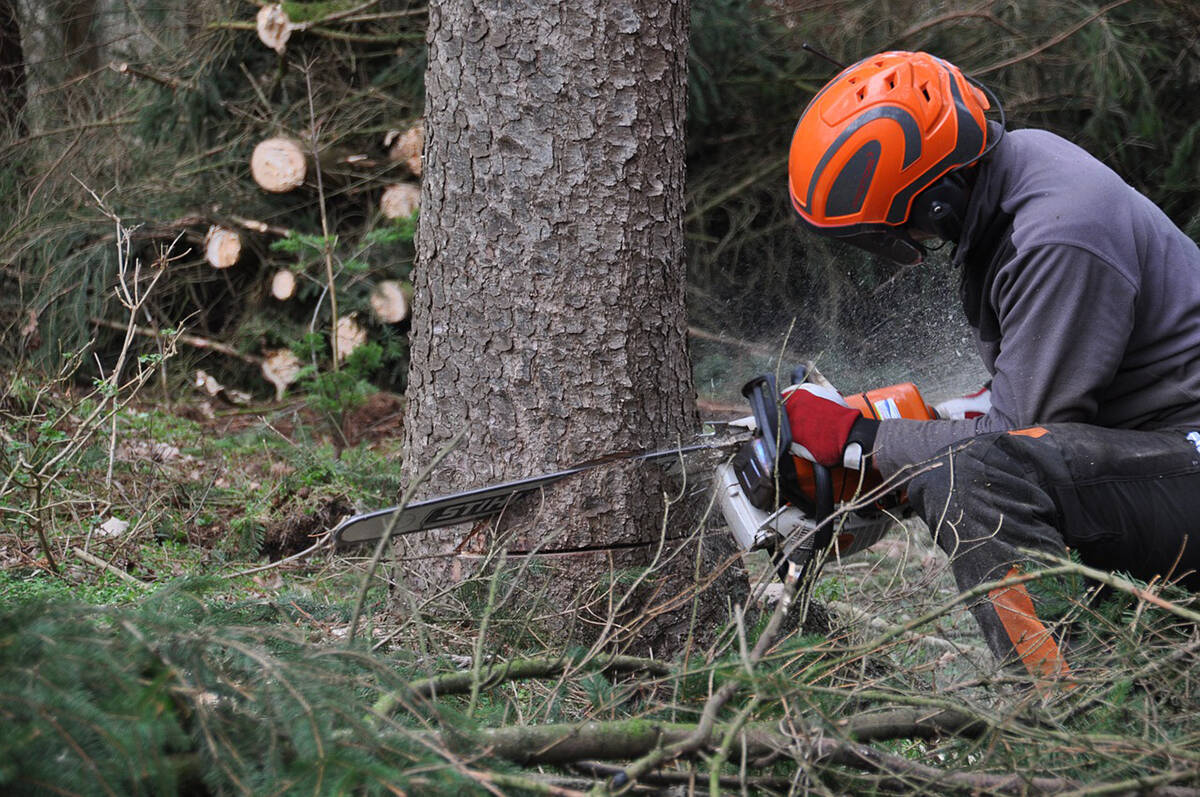A new report warns of a “deepening” and “never-ending” crisis in B.C.’s forestry sector and criticizes government’s inadequate response to it.
Titled ‘A Better Future for B.C. Forestry’, the report was co-prepared by three unions (Unifor, United Steelworkers, Public and Private Workers of Canada) with contributions from others including Canadian Labour Economist Jim Stanford. It finds the sector has “experienced a perfect storm of repeated and intersecting crises” that have “devastated.” They include the on-going softwood lumber dispute; the mountain pine beetle infestation; declining demand for lumber in house construction and newsprint; and last year’s wildfire season, the “most destructive fire season” in provincial history.
Forestry’s contribution to the provincial economy has declined from more than $8 billion (adjusted for inflation) in the mid-2000s to $5.2 billion in 2017 dollars.
According to the report, direct employment in the forestry sector has dropped to just under 44,000 in 2023 from 79,000 in 2001, with 9,000 jobs lost alone since 2018.
“Unfortunately, the bleeding has not stopped,” it reads.
The report notes the disappearance of these jobs has had a disproportionate effect on smaller communities, whose economies are not as diverse. It underscores this point by discussing the recent loss of 175 jobs in the 1,000-person community of Fraser Lake in northwestern B.C.
“Over 17 per cent of the population of town will be laid off,” it reads. “The population of Greater Vancouver is some 2.6 million and 17 per cent of that population is 442,000 jobs. What would happen to Vancouver if it lost that many jobs?”
Overall, the report warns of economic devastation through large parts of British Columbia.
“Dozens of remote and regional forest communities are unsure of their future, unless a viable and sustainable future for forestry can be achieved,” it reads.
The overall state of the forestry sector has led to comments that this once “vital pillar” of the provincial economy, has become a sunset industry, inviting comparisons to Newfoundland’s cod-fishery.
But the authors note that the “continued decline of production and employment in B.C.’s forest industries is neither inevitable nor acceptable” in making several recommendations.
RELATED: B.C. forest industry looks to get out of the woods amid meetings with government leaders
They include the creation of a permanent, province-wide forestry council focused on the preservation of high-quality jobs in forestry-related industries; development of a province-wide plan for a sustainable fibre supply; and maximization of value-added production out of the available supply.
The report also includes a critical assessment of existing government responses to that crisis, which according to the authors, “have consisted largely of a slate of relatively small and ad-hoc assistance programs, delivered with little attention to the need for an overall strategy to sustain the industry.”
While the authors acknowledge government’s launch of several programs to deal with closures, “this scatter-gun approach lacks overall strategy and sufficient resources to provide much more than transitional aid to affected workers and communities.”
The report takes specific aim at one of the signature policies of the current government to help the forestry sector, the $180-million BC Manufacturing Jobs Fund.
“We recognize this significant investment by the province, but once again it is not devoting enough attention to encouraging re-investment in existing mills, to maintain operations and the good-paying jobs they provide.”
Speaking at the 2024 B.C. Forestry Workers’ Summit in Victoria Tuesday morning , Premier David Eby acknowledged the report, adding that this government will put significant suggestions from this report into practice.
“I think there was already a lot of alignment,” he said.
But Eby also admitted that government could have done more to listen.
”I’m very receptive to the feedback…in your report that we haven’t done a good enough job of including you in our responses to the crisis that the industry faces,” he said, adding that solutions “delivered from the top down” without involving people on the ground won’t be successful.
“(So) it does, I will say it, sting a little bit to hear the perspective of your report and your experience,” he said in promising to work with workers.
“The shared feeling that we all have in this room is that forestry is, has to be, and must be a continued backbone of our province.”
BC United’s Mike Bernier, MLA for Peace River South, said the Premier’s word “rang a little hollow” only because the state of the industry has been known for some time. “The companies are pulling out, we are seeing closures and the government ist just sitting and watch it happen,” he said.
Bernier said certainty in the form of timely permits is currently hurting the industry.
“I’m hearing there are lots of opportunities out there, there’s lots of fibre, it’s a renewable resource (but) if you can’t get the permits, it’s hard to go to your investors and say, ‘we invest in British Columbia.’”
Without certainty, companies do not have access to fibre and without fibre they cannot keep mills open, Bernier said. “If we can’t keep our mills open, workers are out of a job.”

